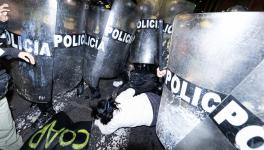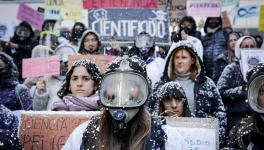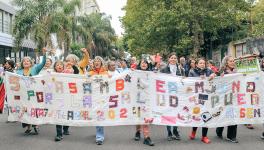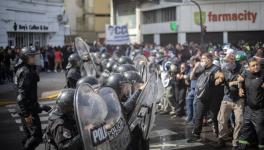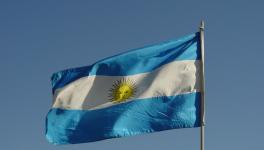Massive Mobilization Against the Socio-economic Crisis in Argentina
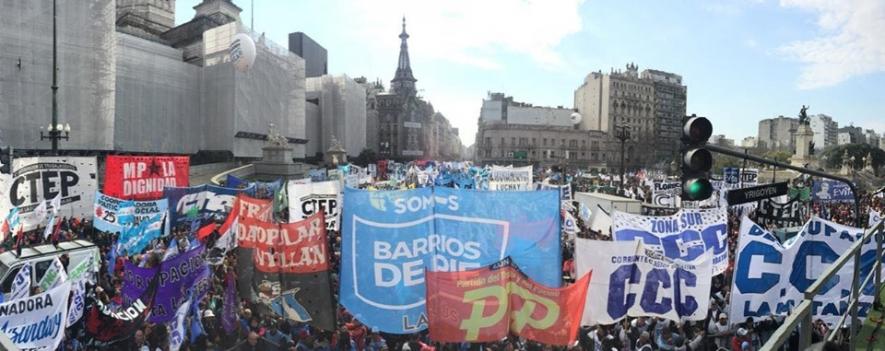
On August 28, under the slogan of “Urgency to face hunger”, more than 250,000 workers from different sectors, left-wing political parties, along with members of several social, human rights, women and students’ organizations, flooded the streets in Argentina, demanding concrete measures to combat the socio-economic crisis facing the country.
The epicenter of the mobilization was the capital Buenos Aires, where more than 200,000 people protested for their demands be addressed on an urgent basis. The protesters marched from the Plaza de la República to the Ministry of Social Development, completely occupying the surrounding streets for several blocks.
Their demands include the implementation of the Food Emergency Act, extension of social emergency measures, an increase in the Supplementary Social Salary and a 40% increase in the budget for lunch and snacks in schools. Along with these, the protesters also demanded for the cessation of suspensions of labor programs, a better budget for the popular economy sector, along with a bonus of 2,000 pesos (USD 37) for the popular economy workers. An increase in the minimum pension and retirement benefits has also been called for.
Demonstrations against the neo-liberal policies of the right-wing government of president Mauricio Macri were also witnessed in the cities of Rosario, La Plata, La Rioja, Santa Rosa, San Salvador de Jujuy, San Juan, Trelew and Posadas.
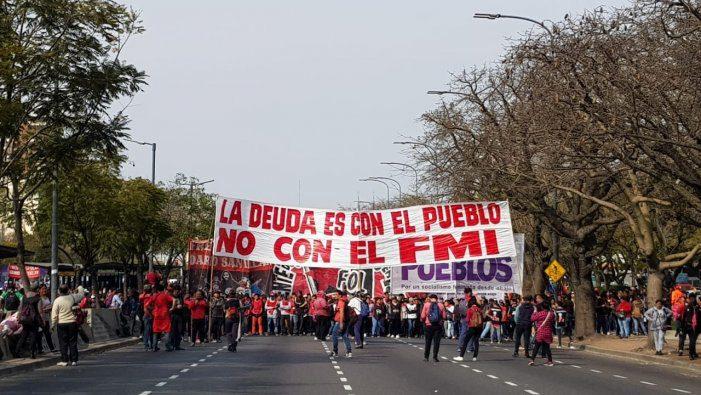
The mobilization was carried out as a part of the National Struggle Day, called for by the Confederation of Popular Economy Workers (CTEP), the Corriente Clasista y Combativa (CCC), the Somos Barrios de Pie, Frente Popular Darío Santillán and the Front of Organizations in Struggle (FOL). It received the support of several other social movements and trade unions as well, such as the State Workers’ Association (ATE), the Argentine Workers’ Central Union (CTA), the Argentine Workers’ Central Union-Autonomous (CTA-A), Truckers Trade Union, the Maritime, Port and Naval Industry Federation of the Republic of Argentina (FeMPINRA) and the Unified Union of Education Workers of Buenos Aires (SUTEBA).
Hashtags such as #TierraTechoTrabajo (#LandRoofWork) and #EmergenciaSocial (#SocialEmergency), urging people to join the common struggle in large numbers, trended on social media.
Several leaders addressed the multitude of protesters at the closing ceremony. They called on the people to vote for the removal of the neo-liberal government. “We have to be very clear, the International Monetary Fund (IMF), the financial capital and all the economic groups, work against us and this government is the expression of their extermination policy,” said Esteban “Gringo” Castro, general secretary of the CTEP. Dina Sanchez, representative of the Frente Popular Dario Santillan said that “this economic and social crisis has a first and a last name: Mauricio Macri and the IMF.”
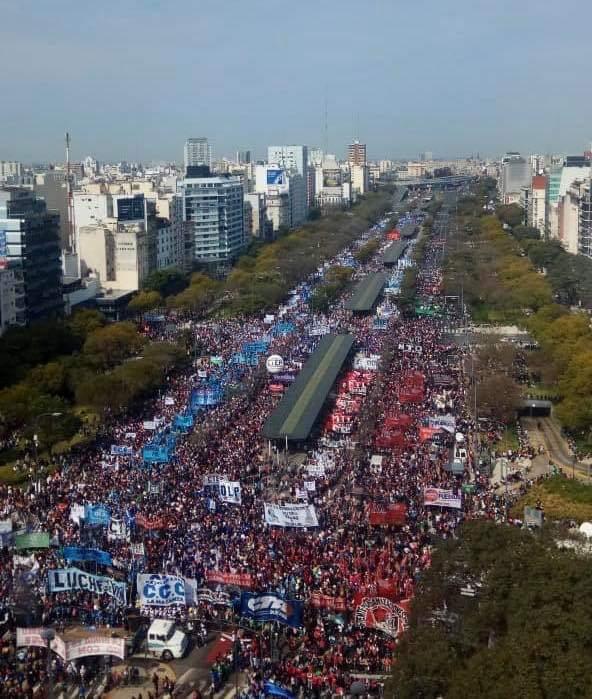
Daniel Menéndez from Somos Barrios de Pie added that “politics should put a limit on the IMF, as Nestor Kirchner did in 2003”. Juan Carlos Alderete from the Corriente Clasista y Combativa pointed out that President Macri “suffered a severe blow on August 11 and on October 27 we have to give him another one, hard enough so that he does not run the country again.”
The organizations also demanded that the representatives of the popular economy sectors must be included in the salary council, to be held on August 30 at the Ministry of Labor, which will define a new Minimum, Vital and Mobile Salary (SMVM). The SMVM is the minimum remuneration that workers ought to receive, as per the Labor Contract Law, to ensure for themselves and their family a decent housing, adequate food, health, education, clothing, transportation, recreation, vacations and social welfare. The law of Social Emergency establishes that the Supplementary Social Salary must be, at a minimum, 50% of the SMVM.
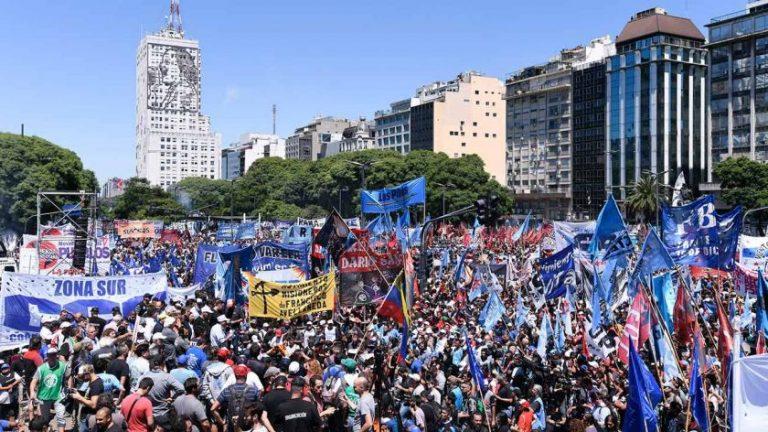
After this massive mobilization, the CTEP has been invited to join the meeting between the trade unions, businessmen and the government. Eduardo Gringo Castro, head of the CTEP, will be the workers’ representative at the salary council meeting.
Macri’s economic measures have led the nation to its worst recession in history. More than 50% of the Argentine population is severely affected by the economic crisis facing the country. The social and economic conditions in the country are continually deteriorating. Due to the devaluation of the national currency, increasing unemployment, poverty, homelessness, food insecurity and inflation, the majority of the Argentine working class finds itself in a daily struggle, trying to make ends meet.
Get the latest reports & analysis with people's perspective on Protests, movements & deep analytical videos, discussions of the current affairs in your Telegram app. Subscribe to NewsClick's Telegram channel & get Real-Time updates on stories, as they get published on our website.










